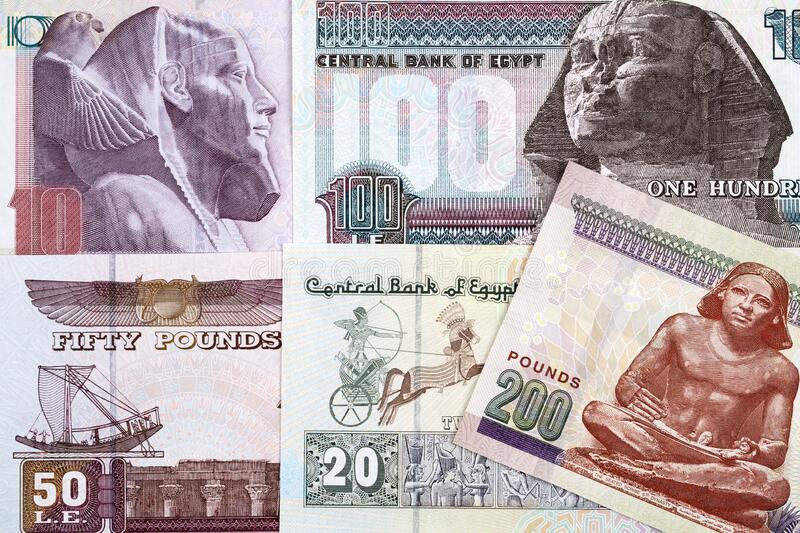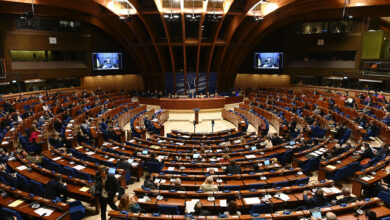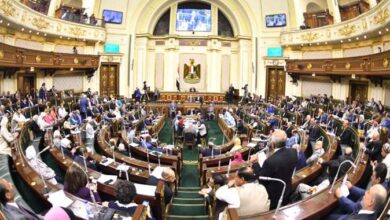Last month witnessed several positive economic developments that did much to reassure the public.
A new exchange rate was in place, measures were taken to secure our wheat needs, and Egypt’s sister nations deposited several billion dollars in the Central Bank, with promises of much more in investment by their sovereign funds.
Swift action by the state on all levels was remarkable and deserves recognition. The state reached out to Gulf states and showed a readiness to cooperate with global financial institutions.
On the domestic front, it made arrangements to secure wheat supplies and make staples available with the onset of Ramadan, and attempted to curb soaring prices.
But it’s a mistake to imagine that we have weathered the crisis. State measures alleviated the pressure of looming threats, but they did not address the underlying structural problems that caused them. These have been festering for some time and are not, I argue, a side-effect of the Russian invasion of Ukraine.
The Gulf deposits that flowed into the Central Bank coffers, no matter how favorable the terms, represent new foreign debt, added to a debt burden that was already considerable before the Ukraine war. In the event of policy shifts in the future, their advantageous terms could become less so, turning them into a means of leverage, as we’ve seen in the past, even from some of our Arab brethren.
International support programs also come with strings attached. While their terms may be technically sound, they do not often take into consideration social conditions, and in any case are additional foreign debt.
Even investments—whether actual or promised—came in the form of the purchase of shares in some of the most successful, biggest private firms in the market. The latter are of course welcome, but it’s hard to ignore the fact that the investments took advantage of low share prices and our urgent need.
The state’s actions were necessary to prevent the escalation of a crisis whose repercussions were already being felt by the public, but we should realize that these measures do not resolve the root problems that brought us to this point.
They only postponed the danger, while adding to our future debt burdens. We should thus look at the current crisis as a new opportunity—dare I say the last?—to consider the root causes and address them seriously, frankly, and with concern for the public interest.
We must encourage private investment—local and foreign—especially in productive sectors because all the state’s efforts and the people’s sacrifices will have been for nothing absent a surge in the kind of industrial, agricultural, and service investment that can bring more employment and export and achieve economic and social stability.
Despite the tireless efforts of the General Authority for Investment, the problem is too great for a single government agency.
It requires coordination at the highest levels between ministries and departments—which is currently not the case—and more importantly, a shift in the state’s approach to investment.
There is an urgent need to define the state’s economic role, not only to give the private sector the space to freely operate, but also to ensure that the state’s spending priorities are more aligned to available resources in the coming period.
The Cabinet Information and Decision Support Center is reportedly preparing a new framework that would define the state’s role in economic activity. That’s a fine start—the important thing is that it continues and is expressive of actual market needs.
We must also deal with rising prices in a pragmatic, considered way, far from high-flown rhetoric. What I mean is we must realize that the traditional tools—price controls, the regulation of retailers, and new campaigns against offenders with stiffer penalties—are no longer appropriate or sufficient. These must be replaced by a greater reliance on encouraging competition, unleashing the energies and creativity of young people and harnessing their enthusiasm to break into the market. They can do this if they are given the means, without obstructions and unnecessary costs.
Last week’s dollar influx that calmed the markets is the product of rapid state action, which I respect and appreciate. But let’s not assume that the crisis has passed or even eased. Instead, let us seize the opportunity to initiate a broad dialogue about the future of our economy and how to unleash our unused productive energies. Let’s take the advantage to come out of the crisis on a sound path that will help us avoid future crises.
Author’s biography:
Dr. Ziad Ahmed Bahaa-Eldin is currently an Attorney-at-Law, and a former Deputy Prime Minister of Egypt (2013-2014) and former member of the Egyptian Parliament representing South Assiut for the Egyptian democratic social party.
He is the also former Chairman of the Egyptian Financial Supervisory Authority (2009/2010), Chairman of the Egyptian General Authority for Investment and Free Zones (2004-2007), senior legal advisor to the central bank of Egypt (2011), a member of its board of directors (2003/2010) and a member of the board of directors of the National Bank of Egypt (2004/2010). Before this, he was a practicing lawyer both in Egypt and the United States.
He is the founder and member of the Board of Directors of the Ahmed Bahaa-Eldin Cultural Foundation, which promotes education, training, and creative thinking among Egyptian youth in Upper Egypt and the founder of the Egyptian Initiative for Prevention of Corruption. Dr. Bahaa-Eldin received his PhD in Financial Law from the London School of Economics (1996), a Master in International Business Law (LLM) from King’s College London (1989), a BA in Economics from the American University in Cairo (1987), and a Bachelor of Law from Cairo University (1986). Dr. Bahaa-Eldin has been a Lecturer at the Law Faculty of Cairo University (1998-2004).




